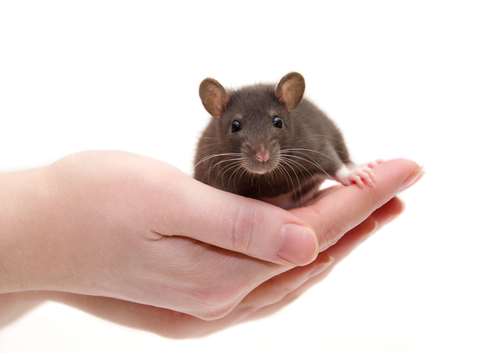Gene Therapy Candidate Holds Promise for Correcting Pompe Disease in Muscles and Brain, Mouse Study Suggests
Written by |

Amicus Therapeutics announced positive preclinical data showing that its investigational gene therapy for Pompe disease is effectively delivered and leads to significant glycogen reduction at key tissues in mice, including the brain and spinal cord.
These preclinical results were announced at the American Society of Gene & Cell Therapy 2019 Annual Meeting, held April 29–May 2 in Washington. They were presented in a poster titled “Development of a novel gene therapy for Pompe disease: Engineered acid alpha-glucosidase transgene for improved expression and muscle targeting.”
Pompe disease is an inherited lysosomal storage disorder caused by mutations in the GAA gene, which lead to a deficiency in the enzyme acid alpha-glucosidase (GAA). Reduced levels or lack of this enzyme lead to the build-up of glycogen (a type of sugar) in several organs, resulting in their damage and especially affecting the heart, respiratory, and skeletal muscles.
Gene therapy is a promising therapeutic approach to achieve long-term recovery of GAA in target organs with no need for frequent administrations, unlike the current standard of care of enzyme replacement therapy (ERT), which is sold in the U.S. as Lumizyme by Sanofi-Genzyme.
ERT also “has limitations for improving muscle function and cannot cross the blood-brain-barrier leading to progressive neurologic deterioration in long-term survivors of classic infantile PD [Pompe disease],” the poster stated.
Amicus’ gene therapy candidate was jointly developed by the company and the Gene Therapy Program of the Perelman School of Medicine at the University of Pennsylvania (Penn). It combines Amicus’s expertise in protein-engineering and glycobiology (the study of sugar’s function and biology) with Penn’s gene-transfer technologies based on adeno-associated virus (AAV).
AAV are carriers commonly used in gene therapy to deliver a functional copy of a given gene to cells, in this case a healthy copy of GAA. The new copy restores the production of a functional enzyme and, thus, it is expected to correct the symptoms of the disease.
In their initial preclinical study, the researchers tested a single high dose of AAV to deliver the gene therapy in mouse models of Pompe disease. They compared the efficacy of delivering the natural human GAA gene (“natural hGAA”) versus a Amicus-Penn engineered gene version (“engineered hGAA”).
This new construct includes a cell receptor binding motif and was designed to enhance both GAA enzyme production and cell targeting. Specifically, the binding motif was added to make a more efficient delivery of GAA to lysosomes, the cell compartments where the enzyme normally works.
The researchers saw that, after a four-week treatment, the engineered hGAA was more efficient at targeting and correcting glycogen accumulation at several key tissues for Pompe disease.
There was a greater cellular uptake and uniform glycogen reduction both in several limb muscles and, importantly, in the central nervous system (CNS), including the brain and spinal cord.
In the CNS, the engineered hGAA therapy lowered glycogen levels to nearly those of a healthy mouse, suggesting this may be an effective way to address neuronal aspects of Pompe disease, according to Amicus. Compared with the natural hGAA, the engineered version was more efficiently delivered to cells, including motor neurons, the nerve cells that control essential voluntary muscle activity.
Additional preclinical studies to evaluate the engineered hGAA with various doses and routes of AAV administration are ongoing.
“Developing a potential cure for Pompe has been a personal and professional goal for many years. These data are profound and it is extremely rewarding to see these preclinical results that show our Amicus engineered GAA is optimized for uptake into target tissues and gets to the right cellular compartments, especially in the central nervous system,” John F. Crowley, Amicus chairman and CEO said in a press release.
“As these data exceed our expectations, our preclinical studies are progressing well ahead of schedule and we now expect to select a clinical candidate in 2019 to move forward into IND[Investigational New Drug]-enabling studies,” he added.
An IND application is the legal route through which a company can apply to the U.S. Food and Drug Administration for starting the first clinical trials in humans to test an investigational therapy.
“These data also provide preliminary and compelling evidence that the Amicus technology to design constructs that enhance protein targeting may be a significant platform for multiple lysosomal disorders,” Crowley added.


